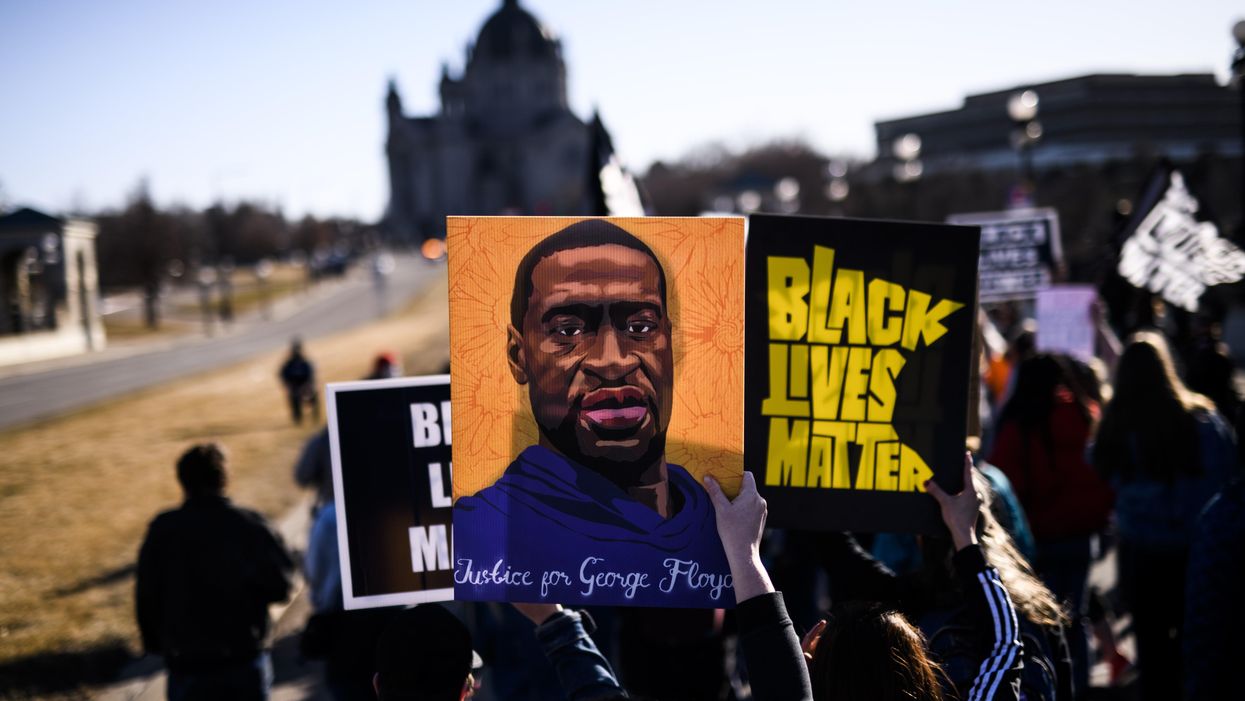Brossard is a senior vice president and Ivey is a senior director at Global Strategy Group, where their polling practice focuses on underserved communities of color, with a particular emphasis on the African American community.
When the sun rose across America on the morning of May 25, 2020, Joe Biden had effectively won the Democratic presidential nomination, President Trump was taking hydroxychloroquine to protect himself from Covid-19, and the country had never heard of George Floyd of Minneapolis, Minn. What a difference a year makes.
For African-Americans however, the reality across the country remains much the same one year after Floyd's murder. Last month, two Virginia police officers assaulted Army 2nd Lt. Caron Nazario for missing license plates on his new car. Last week, The Associated Press published footage showing two Louisiana state police officers killing Ronald Greene as he begged for his life. Earlier this month residents of Elizabeth City, N.C., renewed their protests over the district attorney's refusal to hold police accountable for shooting Andrew Brown in the back of the head.
On the grim anniversary of Floyd's murder, as the Justice in Policing Act named in his honor languishes in the Senate, the nation (and the Democratic Party) stands at a crossroads. Our collective lack of action raises serious questions: Will this be a battle that Black America continues to fight essentially on its own, or will white allies join the quest for racial justice? And more importantly, will policymakers in Washington – most notably Democrats whom Black voters overwhelmingly support each Election Day – suit up and make the battle for racial justice their own?
As Black political consultants working on campaigns across the United States, we know that Black Americans have continued to believe in America and love this country – even when that same sentiment isn't requited. We hear this in small focus group sessions from Los Angeles to Ft. Lauderdale, in polls of Georgia and Michigan. It's why Black political participation has grown since 1968, to the point where it is now at parity with white voters. And largely thanks to Black voters, it's why we have President Biden and Senate Majority Leader Chuck Schumer. In the face of persistent voter disenfranchisement, Black voters keep showing up, hoping they can finally make Black Lives Matter throughout all of America.
The political establishment, namely the Biden administration and Democrats in Congress, cannot be complacent because Black voters keep voting. Polling has shown that Black America's ties to the party of FDR and LBJ have been weakening in recent years. Barack Obama's history-making election temporarily assuaged the growing disillusionment Black voters have been feeling toward politics and toward the seemingly never-ending effort to align white liberalism with racial egalitarianism.
It's why months after record turnout resulted in Democratic control of Washington, a plurality (48 percent) of respondents in a new Global Strategy Group poll of Black voters believe that "the Democratic Party takes Black votes for granted and does not do enough to help the Black community" – only 29 percent disagree. As a typically low-turnout midterm campaign cycle kicks off, Democrats need to do everything they can to incent Black voters – their most loyal voter segment – to show up again in 2022.
The good news is this is simple to do: Deliver on campaign promises. Three in four Black voters say they are more likely to vote in the midterms if Biden does just that. Being a party that keeps its promises to Black folks will be much more effective than expanding early and mail-in voting, making voter registration automatic, or ending state voter ID laws.
As the administration's first 100 days recede into the rear-view mirror, the Biden White House should take heart that Black voters believe they're on the right track: Biden's favorability rating among Black voters in GSG's poll is 86 percent; Vice President Kamala Harris' is 84 percent. For context, Black Lives Matter is viewed favorably by 84 percent of Black voters nationally.
Time is of the essence, and what a difference a year can make. If 2020 is any indication, the political environment can change very rapidly. November 2022 is a political lifetime away, and to retain its majorities, Democratic policymakers must finally begin to deliver transformation to Black America.
This is no time to think small or be satisfied with narrow victories. We cannot let this moment of Democratic control be a blip on the political radar. America must renew its fragile and fraying social contract now, in a way that says to Black Americans: "We hear you. We love you back. And Black Lives do Matter."



















